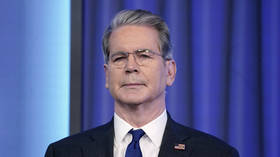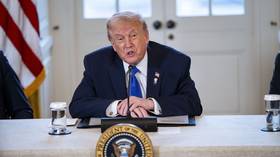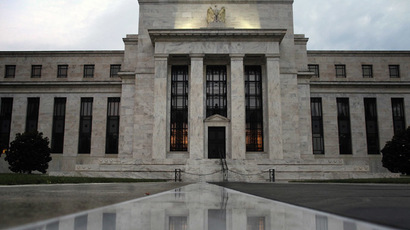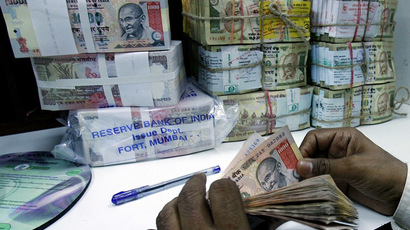Fed up? US expected to cut cash stimulus
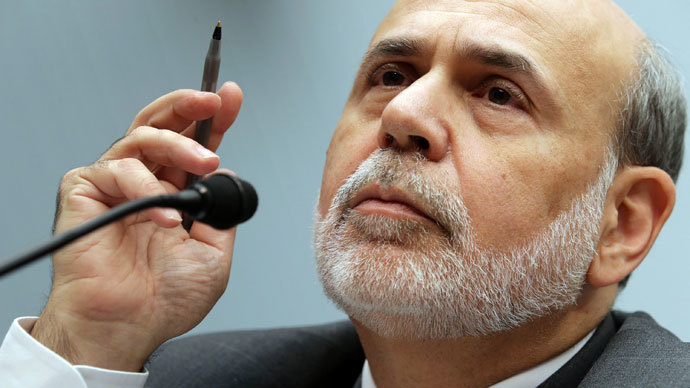
The main question ahead of the key Fed meeting on Tuesday is whether the world’s largest economy can survive on less government monetary stimulus. Data shows the economy is still luke-warm but politics will encourage the Fed to slow quantitative easing.
Chair Ben Bernanke gave strong hints in August that the Fed would decide to begin tapering its stimulus in September. If he reneges it could destabilize markets and jar investors.
A final decision will be reached on September 18 at the conclusion of the two-day meeting of Federal Open Market Committee (FOMC).
Most economists expect a soft cut in the stimulus program to
about $75 billion a month from the current $85 billion cash
injection. Reducing the purchases, even by $10 billion, risks
wiping out the success achieved in the last four years, and a
possible return to dangerous industry bubbles and high inflation.
America’s behemothic bond-buying program has aided a housing market revival, driven economic growth, helped sustain a four-year stock rally in the US, and has been a push in emerging markets worldwide.
Unemployment and inflation are the key indicators US monetary authorities are watching in their decision making. Though the US economy and job market have slightly improved following the protracted recession, the Fed could be jumping the gun on the stimulus cut-back, as employment still lags and consumer sentiment is down.
The unemployment rate is now 7.3 percent, the lowest since 2008. Yet the rate has dropped in large part because many people have stopped looking for work and are no longer counted as unemployed - not because hiring has accelerated. Inflation is running below the Fed's 2 percent target, with the wholesale prices adding 1.4 percent in the 12 months through August.
Forecast growth for 2013 is between 2.3 and 2.8 percent, but real growth is closer to 1.8 percent for the first half of 2013. Growth is sluggish, but much more robust compared to the EU, which posted 0.3 percent growth for Q2.
Retail sales in the US hit a five-month low in August, with strong auto sales but weak retail spending. Overall retail was up 0.2 percent, but lower than forecast.
Consumer sentiment also reached a five-month low in August, a sign household spending still hasn’t quite recovered. The University of Michigan’s consumer sentiment index fell to 76.8 from 82.1 in August.
‘Boss factor’
Bernanke’s departure as Chair in January 2014, politicizes the Fed decision, as many believe the US central bank will ‘rush’ to start the wind-down under Bernanke’s tenure instead of waiting for a new Chair.
Leading candidate, and Obama-favorite Larry Summers, withdrew his name for consideration on Sunday,
leaving Janet Yellin, 67, the moderate vice chairwoman of the
central bank, as the likely successor.
A Yellin decision is seen as a safer, smoother, move to Summers,
as colleagues fear he would dismantle the stimulus too quickly
and aggressively. Asian markets advanced on Summer’s exit, as the
cash-cut off could have a nasty spillover effect on emerging markets.
"If this were a decision based on economics, I think the Fed
would wait, but given the politics of a new chairman having to go
before Congress for confirmation, that could be an argument for
moving now," David Wyss, former chief economist at Standard
& Poor's and economics professor at Brown University, Reuters
reports.
More than 350 economists penned an open letter to President Obama advocating Yellin’s nomination as Deputy Chair of the US Central Bank. Yellin also has a strong contingency within the Senate Banking Committee, who saw Summers as too lax on financial regulations to count on as an ally to raise the debt ceiling, which Democrats, supported by Obama, will push to extend in mid-October once the US hits their spending limit.
If Congress doesn’t extend the debt ceiling, the US could be forced to default on their debt and the government could shut down.
Yellin, who chaired the White House Council of Economic Advisers under the Clinton administration, would be the first woman to head the Federal Reserve.
Japan’s Nikkei bulletin erroneously reported Friday that Summers would replace Bernanke. Obama has said he has also interviewed Donald Kohn, 70, a former Fed vice chairman, to replace Bernanke.


